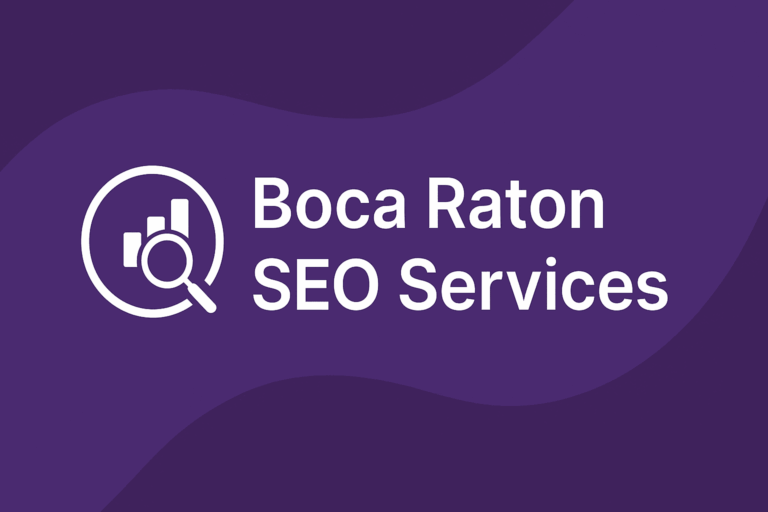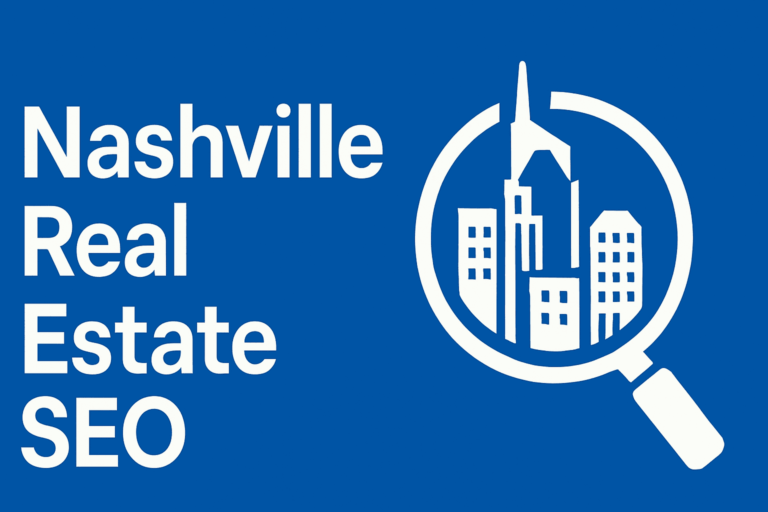Landing pages are a key way to gain conversions, as they direct the user to take action. However, location-based landing pages take this to the next level by providing even greater specificity and audience segmentation.
As search algorithms evolve, so do best SEO practices, but geo-location pages remain an excellent strategy for appearing higher in local search results and capturing potential customers. Stellar SEO excels in building focused, high-performing landing pages that are tailored to your target audience.
What is a Geo-Targeted Landing Page?
Geo-targeted landing pages are optimized for a specific market. They improve local search visibility by including location-specific keywords, optimized meta tags, and relevant content that will appeal to that audience.
A geo-targeted marketing strategy can provide a competitive advantage to local businesses, including those with more than one physical location. By creating unique pages for each specific location, a company can appear higher in search rankings for each service area, connecting them to local audiences while boosting revenue.
-
Key Elements of an Effective Geo Page
To create a geo-targeted landing page, you must include several essential elements. The first is location-specific information based on appropriate keywords for that area. For example, if you are a San Diego pet store, you’ll want to include local keywords related to the city and county, as well as your physical address and products.
You will also need to have a clear call to action (CTA). This could be filling out a form, signing up for your mailing list, contacting you for an estimate, downloading a file, or claiming a coupon. Additional content can include customer testimonials, FAQs, pictures, and links to your other pages, like your Google Business Profile.
While a geo landing page should be simple, it must include exciting and compelling language that encourages local customers to act quickly.
-
The Role of Local SEO in Geo Pages
Geo-targeted landing pages are crucial for local SEO, as they will help search engines identify areas where you operate through the use of localized keywords and contact details. When users search for a local keyword phrase, such as “[Service] near me,” your landing page will show up, improving search visibility.
By specializing your marketing campaign for each service area, you can appear higher on local search rankings and demonstrate your local knowledge, which can improve conversion rates.
Why Do Geo Pages Work So Well?
Targeted landing pages capture traffic more effectively than a general approach because they provide a more personalized user experience, helping visitors feel that you’re a local business they can trust.
Higher rankings on location-based searches will help you gain visibility and connect with more local customers, who will be more likely to convert because they recognize you have the services they need.
Geo-targeted landing pages are especially helpful for businesses with multiple locations. You can direct potential clients to your location closest to their area, which allows you to perform better user segmentation and target each audience most effectively.
-
User Intent and Local Relevance
With location-based digital marketing, it’s crucial that you understand the needs and preferences of the local market when crafting your landing pages. For example, a real estate agent creating a local landing page will want to include actionable tips and data about the local market, providing value and demonstrating their authority.
Our local SEO experts can help you create precise and comprehensive landing pages that capture user attention by including content perfectly matched to user intent, including relevant keywords and contact information.
-
The Impact of Geo Pages on Conversions
Geo-targeted landing pages can lead to higher conversion rates by providing tailored content that specifically addresses local customers’ pain points and needs. Your landing page will add value and offer helpful information, demonstrating your credibility in authority in the market while also feeling more personable.
-
The Impact of Geo Pages on Local Visibility
Optimized geo-targeted pages can increase traffic and improve search engine rankings by including keywords relevant to local searches that other landing pages may not.
In general, search engines will match user queries with their IP address for geolocation targeting. This means the user will be shown results for nearby cities first when they search for any product or service, even if they don’t add “near me.”
As such, creating a landing page with the right target keywords will help Google or other search engines match you to a specific location, thereby making them more likely to recommend you to users.
Targeting a local area can also improve conversion rates. Customers will feel that your product or service better matches their needs than one without location indicators, especially if you include precise details about your service area. Even if you’re a multinational corporation, capturing that local feeling will increase trust and boost conversions.
How To Build Helpful Geo Landing Pages?
To maximize your marketing efforts, you must create geo-targeted landing pages that clarify your area of business and provide content that encourages users to take your desired action. Your landing page should be both search engine-friendly and user-friendly, with a responsive and clean design.
-
Conducting Local Keyword Research
Keyword research is essential for reaching your target audience. Instead of guessing about what users are searching for, drilling down into local search data can ensure you use the right words to capture a user’s attention.
Learn more about our Keyword Research Services!
Tools like Google Keyword Planner, Semrush’s Keyword Overview Tool, or Ahref’s Keyword Generator Tool can help you identify the most valuable keywords in a given area. For example, if you’re a general contractor in San Diego, you want both “general contractor near me” and specific services you may provide, like “drywall repair.”
-
Writing Location-Specific Content
When writing content for your geo landing pages, you need to balance a great user experience with optimal keyword density. Instead of just putting in as many location-based words as possible, consider how to make it clear you understand the area while also providing valuable information about your services.
For example, mentioning a local landmark or cultural reference may not affect your search results. Still, it will convince readers that you have local insights and are a member of the community. You can also include local statistics and data that are relevant to your industry. For example, if you’re a healthcare service provider making a landing page for a doctor’s office, discuss the unique needs of that community.
-
Optimizing Meta Tags for Local Search
Users see the title tag and meta description when they view the search results for a certain keyword. This is your first chance to capture attention by enticing users to click on your landing page, so you must get it right.
Localized keywords and exciting meta descriptions will create a sense of curiosity and urgency in users viewing your listing. In addition to calling out your service area, you should provide a clear but concise description of what they can expect when they click on your listing, along with a call to action. Though these descriptions are very short, it’s worth it to spend time ensuring they’re perfectly optimized.
-
Incorporating Localized CTAs
Localized calls to action will increase engagement and result in higher conversions than a plain, nondescript call to action. For example, you may include “Talk to a Philadelphia realtor” or “Visit our San Diego outlet,” further demonstrating that you are a local company serving a specific area.
You should always include valuable contact information, such as the local phone number or a Google Maps embedded image, as this will help local clients find you faster without having to search for the details.
-
Designing a User-Friendly Geo Page Layout
In addition to specifying your physical location for users, you must also ensure that your landing pages provide an excellent user experience. This includes mobile responsiveness, fast loading times, and clear navigation.
It should be easy for a user to visit other pages on your website, and there should be a prominent call to action, whether that is calling for a consultation or requesting more information about your services. A simple, responsive, and intuitive design will be much more effective than a cluttered interface that hides key information.
Common Mistakes to Avoid with Geo Pages
A geo landing page can be an excellent way to reach your target audience more effectively, but you must avoid common pitfalls like keyword stuffing, which can lead to penalties from search engines.
While a template approach can be a great way to ensure that every landing page has the same information, you must customize each one to the specific marketplace. Adding a particular section that is optimized for the given area, such as by having exclusive, market-relevant content, can be a great way to improve your geo-targeting while ensuring consistency across all your market sectors.
-
Avoiding Duplicate Content
When geo-targeting, it’s crucial that you create unique and high-quality content, or you may damage your SEO efforts. Search algorithms will penalize you if they notice duplicate or thin content across multiple pages.
While your landing pages will likely include much of the same content so that you have a standardized experience, each local landing page should have unique keywords and be written as a standalone page. For example, you can include research about the local area to help differentiate each page without starting over every time.
This can be a daunting task, especially if you have numerous locations. As such, it is helpful to work with a local SEO expert like Stellar SEO, as our team can ensure that all your geo-targeted content is unique yet standardized.
-
Balancing SEO and User Experience
While your landing pages should have content that Google and others love, you can’t forget about users when building your content. Focusing solely on SEO, such as by keyword stuffing, can frustrate users and even make them feel that you’re untrustworthy.
Instead, apply your SEO research on relevant keywords and incorporate these naturally into your content. Both users and algorithms will appreciate fast loading times and mobile-first design, while clear navigation and proper site architecture help with both objectives.
Measuring the Success of Geo Pages
Stellar SEO relies on data to track the performance of your landing pages, including organic traffic, bounce rates, conversion rates, and keyword rankings. Each of these can tell us valuable information about how our efforts are paying off and what may need to change.
We’ll help decipher these details so that we can ensure that your campaign is optimized and that you are truly connecting with your audience.
-
Analyzing Local Traffic and Engagement
Tools like Google Analytics can help you monitor traffic and user engagement on geo pages, identifying trends and potential improvements. Each of the statistics that our team uses can help you find ways to refine your approach and grab more attention.
For example, low traffic means that you’re not inspiring users to click on your search engine listing. A high bounce rate can tell us that while your title tags and meta descriptions are drawing in users, the page’s content isn’t engaging them enough to search through the rest of your page. Low conversion rates may suggest that the call to action isn’t clear or compelling enough.
-
Regularly Updating Geo Pages
Keeping your information up-to-date is crucial for maintaining relevance and rankings, especially if you have any changes to your name, address, and phone number (NAPs). When deciding what to show, search algorithms will prioritize fresh content over older pages, assuming that they have more updated information for users.
Adding fresh content and submitting updated sitemaps to Google can ensure that your page gets crawled and indexed. You can include updates about your services, change pictures, or provide the newest research into your market.
If you’re ready to create beautiful, customized landing pages that draw maximum engagement, contact Stellar SEO today. We’re local SEO experts with years of expertise in boosting traffic, raising brand visibility, and converting casual users into devoted fans of your brand.
Geo-Targeted Landing Page FAQs
How can geo pages help my business rank locally?
With a geo landing page, you provide targeted content that includes location-specific keywords, helping you rank for these local searches. Your page will be more relevant to specific inquiries, which can help you rank higher.
Because Google and other search sites use IP addresses and geolocation tags, users will be automatically matched to nearby businesses when they perform searches, even if they do not include a location-based inquiry.
By demonstrating that you work in their city or county, the algorithm will identify you as a more suitable match than a company that does not have a specific geo page, even if that company also works in the area.
What are the best practices for creating geo pages?
When creating geo landing pages, perform keyword research to ensure that you’re targeting the correct keywords, then develop customized content that matches user intent. Perform careful market research to understand what users want in that area rather than relying on general information; the more specific you can be, the better.
Include a specific and highly visible call to action, such as asking users to fill out a contact form or claim a free coupon. Ensure that your call to action also includes a geotag, such as the biggest city in the area.
Ensure that the page is fast-loading, mobile responsive, and includes simple navigation to other parts of your website. Use enticing, time-sensitive language that encourages users to act quickly.
How do I choose the right locations for geo-targeted pages?
In general, you want to prioritize where most of your user base will be located. If you work in a major metropolitan area, work on this language page first before adding pages for smaller areas, like suburbs. Each page should also include mentions of the broader region, such as the county or the area of the state.
How often should I update my geo pages for the best results?
Quarterly updates to landing pages will ensure that you have fresh and intriguing content. However, if you work in a fast-moving industry, like real estate, you will need to update more frequently to stay relevant.
Can geo pages improve local SEO performance?
Geo-targeting with local landing pages is an excellent way to improve your local SEO and connect with potential customers in your area. By appearing higher for these smaller, regional keywords, you can demonstrate your relevance for geographic searches and rank higher than companies with more generalized landing pages.
















